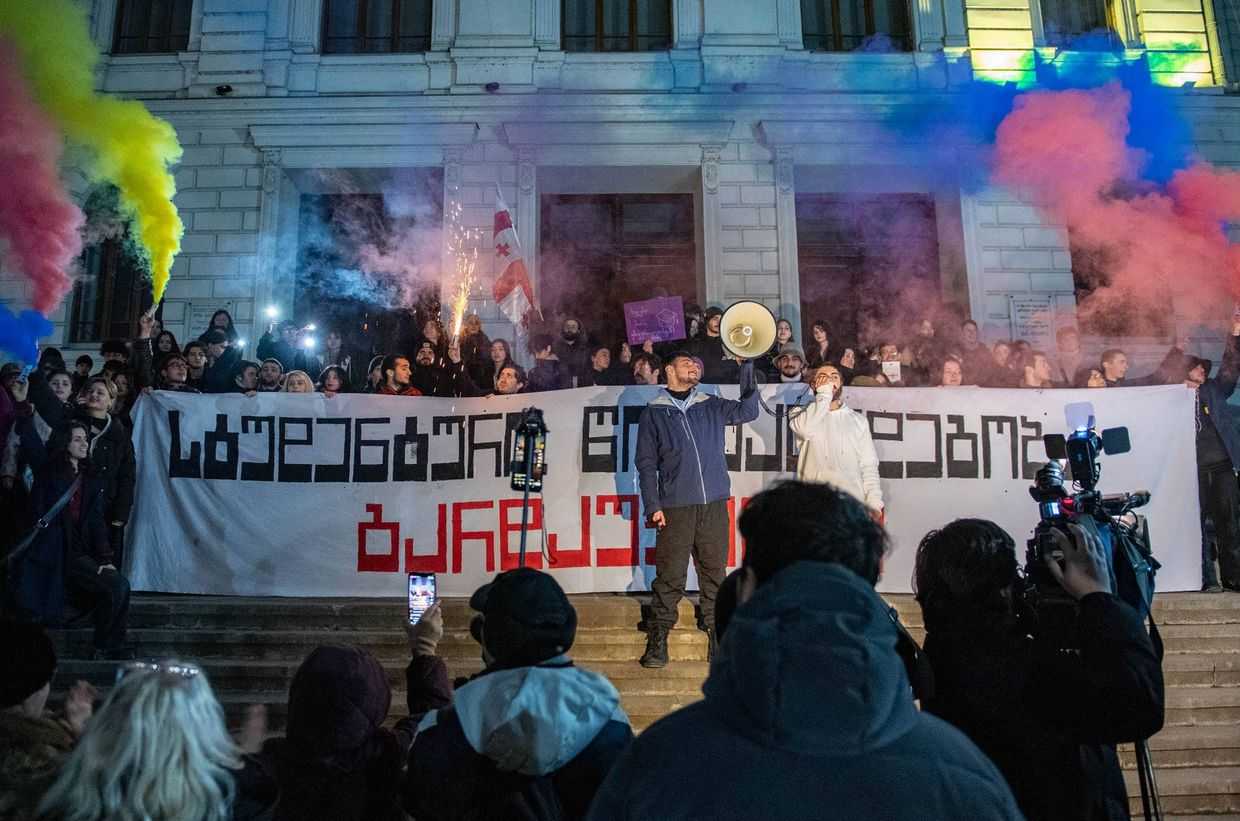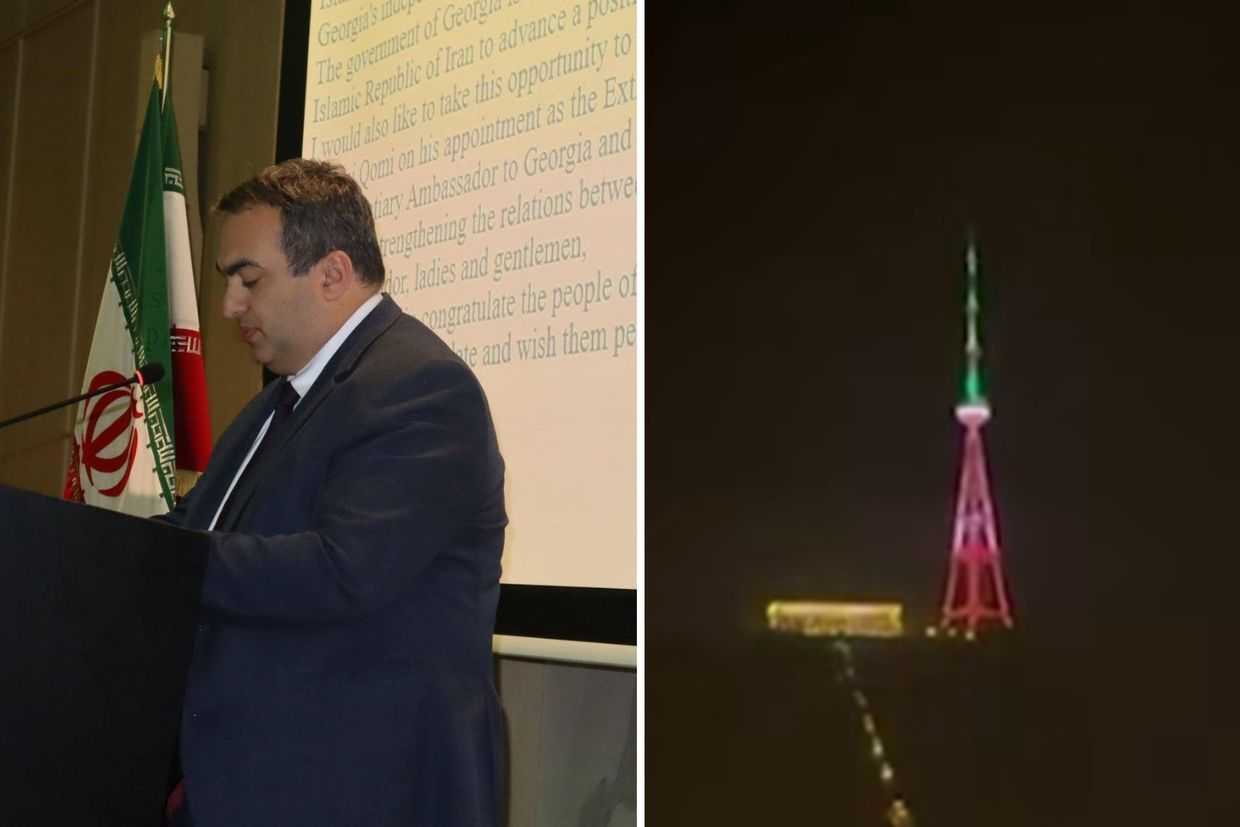
The US has imposed sanctions on three current and one former judge alleged to be members of a ruling-party-associated ‘clan’ in Georgia’s judicial system.
On Wednesday, the US State Department accused judges Mikheil Chinchaladze, Levan Murusidze, and Irakli Shengelia, and one former judge, Valerian Tsertsvadze, of ‘involvement in significant corruption’ and ‘undermining the rule of law’.
The four Georgian nationals and their immediate family members have been banned from entering the USA.
The ruling Georgian Dream party responded defiantly to the announcement, accusing the US of corruption and threatening to leak details of private conversations with US officials.
The four sanctioned individuals have previously been accused of being closely allied with the ruling Georgian Dream party, and of abusing their positions as members of Georgia’s High Council of Justice (HCOJ).
The HCOJ is an independent agency responsible for overseeing the judiciary that has faced significant domestic criticism, with critics alleging that it is run by a ‘clan’ of judges allied with the government and has deliberately stalled judicial reforms.
In response to that criticism, the HCOJ in 2021 accused the US and EU of interfering in Georgia’s judicial independence.
[Read more on OC Media: Georgia’s ‘clan of judges’ hits out at ‘foreign interference’]
Chinchaladze and Murusidze both received life tenure at Georgia’s Court of Appeals under Georgian Dream, with Chinchaladze replacing Tsertsvadze as chair last summer and Shengelia becoming his deputy. Both Chinchaladze and Murusidze have also been accused of possessing undisclosed wealth of unknown origin.
Georgian Dream’s alleged collusion with a clan in the HCOJ has had a significant cost for the ruling party, which came into power on a promise to eliminate politically-directed judicial rulings.
Local watchdogs, and in the past, members of the ruling party, had long warned of the presence of the clan, dating back to the previous government under the United National Movement (UNM).
In 2018, a number of MPs left the party, including one of the party’s founders, Eka Beselia, in protest against the government’s allegedly close ties with the ‘clan’. This was followed shortly afterwards by the party losing its constitutional majority in early 2019.
The State Department announcement noted that those sanctioned had ‘abused their positions as court Chairmen and members of Georgia’s High Council of Justice’, which had undermined ‘the rule of law and the public’s faith in Georgia’s judicial system’.
Today I designated four Georgian former and current officials for significant corruption, making them ineligible to enter the United States. We stand with the government and people of Georgia in their efforts to advance transparency and democratic governance.
— Secretary Antony Blinken (@SecBlinken) April 5, 2023
Upon recommending the EU deny Georgia membership candidate status last June, the European Commission urged Georgian authorities to ‘ensure a judiciary that is fully and truly independent, accountable and impartial’ and to ‘safeguard the separation of powers’.
It specified that Georgia should ‘undertake a thorough reform of the High Council of Justice’, and that the judicial system needed to be ‘fully in line with European standards and the recommendations of the Venice Commission’.
Judicial reforms are among the key ‘priorities’ the EU set for Georgia, for the country’s membership candidacy bid to be reconsidered later this year.
‘They mired Blinken in corruption’
Within hours of the announcement, the ruling Georgian Dream party leapt to the defence of the sanctioned judges, with party chair Irakli Kobakhidze claiming the decision was driven by misinformation and corruption.
‘There are corrupt processes behind [US Secretary of State Antony Blinken’s] statement’, Kobakhidze alleged on Wednesday night, speaking on pro-government TV channel Imedi.
‘I don’t mean just money by “corruption” ’, added Kobakhidze. ‘It is especially alarming that they have mired Secretary of State Blinken by publishing a statement like this, which is very bad; it speaks terribly of those individuals who deliver this kind of information to the Secretary of State.’
Kobakhidze went on to accuse the US of interfering in Georgia’s ‘independent court’, and appeared to threaten to leak information from calls with the US.
‘We have many topics, including what they had been demanding from us in phone conversations’, said Kobakhidze. ‘Hence, I want to call on everybody to obey the rules and play by the book’.
While he did not specify what ‘demands’ the US had made, both Georgian Dream and People’s Power, a sub-group within the parliamentary majority, have frequently alleged that there is a Western conspiracy to involve Georgia in war with Russia.
The Kremlin has similarly accused the ‘collective West’ of attempting to draw Georgia into the war, a claim repeated by the Russian Foreign Ministry on 6 April.
Both groups have also frequently criticised both the US and their Ambassador to Georgia, Kelly Degnan. This rhetoric escalated in July 2022 after Tbilisi City Court Judge Lasha Chkhikvadze accused the US Embassy of pressuring him and the Georgian judiciary by removing him from a study visit to the US.
[Read more on OC Media: Georgian judge says US revoked invite following Gvaramia ruling]
The US State Department responded by condemning ‘personal attacks’ on Ambassador Kelly Degnan.






![Baia Margishvili standing in central Tbilisi with a sign reading: ‘The Prosecutor’s Office [is] a punitive squad. How many more innocent people will you put in prison?’ Photo: Mariam Nikuradze/OC Media.](/_next/image/?url=https%3A%2F%2Fassets.bucket.fourthestate.app%2Foc-media-prod%2Fcontent%2Fimages%2F2026%2F02%2Fcalls-for-sanctions-and-raids-19-10-25-48.jpg&w=3840&q=50)


